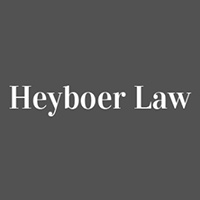Richmond Bankruptcy & Debt Lawyer, Michigan
Sponsored Law Firm
-
 x
x

Click For More Info:
-
Marrs & Terry, PLLC
6553 Jackson Road Ann Arbor, MI 48103» view mapBankruptcy & Debt Personalized, Efficient Counsel
Marrs & Terry, PLLC have been helping individuals face a variety of legal challenges, including bankruptcy, estate planning and administration, and family law.
800-862-7221
Anissa Cherri Hudy
✓ VERIFIEDBankruptcy & Debt, Estate, Landlord-Tenant, Litigation
Anissa Hudy is a practicing lawyer in the state of Michigan.
Shawn J. Coppins
✓ VERIFIEDDivorce & Family Law, Criminal, Accident & Injury, Bankruptcy, Traffic
Mr. Coppins was born and raised in the Metro-Detroit area and is a Litigation Specialist
Shawn Coppins is an aggressive plaintiff's attorney and is one of the firm's founding partners.Mr. Coppins was born and raised in the Metro-Detroit ar... (more)
David R. Heyboer
✓ VERIFIEDCriminal, DUI-DWI, Bankruptcy & Debt, Personal Injury, Real Estate
When you've been arrested and facing criminal charges, there can be serious consequences for you and your family. Don't face your criminal charges alo... (more)
Derek J. Brackon
Business Organization, Family Law, Collection, Wills & Probate
Status: In Good Standing
Stacey L. Sanford
Commercial Real Estate, Estate Planning, Employment, Bankruptcy
Status: In Good Standing
Timothy J. Miller
Lawsuit & Dispute, Employment, Bankruptcy
Status: In Good Standing Licensed: 40 Years
Scott L. Mazey
Bankruptcy & Debt, Divorce & Family Law, Criminal, Estate, Real Estate
Status: In Good Standing Licensed: 31 Years


 Tricia Terry Ann Arbor, MI
Tricia Terry Ann Arbor, MI AboutExperienced Michigan Lawyer
AboutExperienced Michigan Lawyer Articles
Articles



